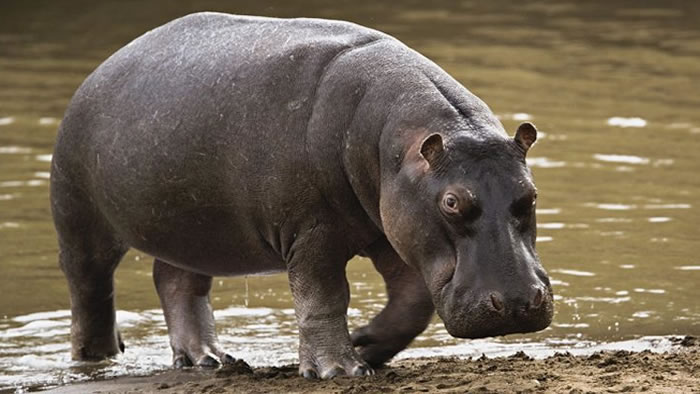The Difa community, located in the Yamaltu/Deba Local Government Area of Nigeria’s Gombe State, has been facing constant attacks by hippopotamuses on their farmlands.
The farmers expressed their worries on Friday, saying that the attacks cause them losses and endanger the government’s food security plan.
A farmer and retired civil servant from the community, Ali Umaru, told the News Agency of Nigeria, NAN, that the hippopotamuses attack is a yearly problem that has made farming very difficult and frustrating for them.
He said the community is a favourable habitat for the animal because it is near a river and the Dadin Kowa dam, which is only two kilometres away.
He said the animals come in large groups and invade their farmlands, eating and destroying their crops, especially during the dry season.
“They (hippopotamuses) come in the night mostly in a group of 10 to eat our rice, okro, watermelon, and others and retire from our farm by 6 am and go back to their hiding places.
“This is very painful because the damage is pushing farmers into poverty and reducing the food that should have been sold to humans.
“The menace is reducing efforts at ensuring food security because farmers who cultivated 50 hectares may end up harvesting only 20 hectares, losing 30 hectares in some cases.”
Another farmer, Mrs Lois Joshua, said, “last year, the hippos ate three hectares out of the 50 I cultivated and they normally come close to harvest and soon we will be harvesting and many of us are very nervous.”
Another farmer, Amina Nuhu, told NAN that the community has hired youths to protect their farmland from the hippos at night.
She said they paid N20,000 every month to the youths who use torchlights to chase away the animals from their farms.
The Permanent Secretary, the Ministry of Agriculture and Animal Husbandry in Gombe State, Ibrahim Yakubu, said he was not aware of the hippopotamus attacks on farmlands.
He said this was the first time he heard about it.
“You know a hippopotamus is a wildlife, so they can write to the Ministry of Environment and we can investigate.”
The Permanent Secretary of the Ministry of Environment, Abubakar Hassan, asked the farmers to be patient for the government’s solution to the problem.
He appealed to them not to hurt the hippos because they are endangered species.
Hippopotamuses are huge, water-loving animals that inhabit rivers and lakes across sub-Saharan Africa, including Nigeria.
They are the third-heaviest land animals, after elephants and white rhinos, and can tip the scales at 8,000 pounds.
They are also called the “river horse” because of their speed on both water and land.
They have features such as webbed toes, thick skin, and strong jaws that help them adapt to their environments.
They are plant-eaters and graze on short, soft grasses and fallen fruit at night when they leave the water for the land.
They have a flat, paddle-like tail that they use to fling excrement to mark their area and rank.
Hippopotamuses are at risk of extinction due to loss of habitat and hunting by humans.
They are often slaughtered for their meat, fat, and ivory tusks, which are prized by humans.
They are also seen as a problem by some farmers who face losses from their crop destruction.
In Nigeria, hippopotamuses are mainly found in the Niger Delta region, where they face dangers from oil pollution, deforestation, and poaching.
The Nigerian government has set up some protected zones for hippopotamuses, such as the Yankari National Park and the Kainji Lake National Park, but more conservation actions are required to ensure their survival.
Hippopotamuses are amazing animals that have an important role in the ecosystem.
They help keep the rivers and lakes healthy by oxygenating and fertilizing them.
They also offer food and shelter for other animals, such as fish, crocodiles, and birds.
They are part of the cultural legacy of many African communities, who have myths and legends about them.









Got a Question?
Find us on Socials or Contact us and we’ll get back to you as soon as possible.